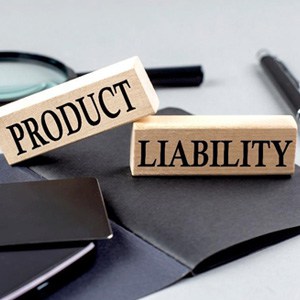Product Liability: Understanding Cases, Injuries, Damages, Statute of Limitations, and Liability

- How to grasp product liability and recognize potential defective items.
- Why you should always remember to act promptly within the statute of limitations.
- The importance of never overlooking liability across manufacturers and distributors.
What Is Product Liability?
Product liability arises when an individual sustains injuries due to an unreasonably dangerous or defective product. This can encompass a wide range of items – from vehicles and car tires to household tools, can openers, lamps, and furniture. Essentially, any manufactured product that causes an injury can become the basis for a product liability claim.
What Are Some Examples Of Product Liability Cases That You’ve Handled?
Product liability cases frequently originate from instances involving vehicles with inadequately designed components. This can result in sudden and unexpected acceleration; failure of airbags to deploy or even airbag deployment for no reason. Within this context, vehicles are not only expected to function but also to be engineered to be “crashworthy.” This term signifies that while vehicles need not be impervious to collisions, they must provide a fundamental level of protection to occupants when accidents occur.
It’s worth emphasizing that the world of product liability extends beyond just vehicles. Injuries that stem from inadequately designed or manufactured tools also fall within its purview. An illustrative example of a case I handled involved a carjack that suddenly collapsed because the manufacturer used substandard materials causing the carjack and the car it was supporting for come crashing down on my client causing severe and life changing injuries. Our investigation proved that the manufacturer constructed the carjack with cheap and below standard materials instead of using the materials specified by the designer, rendering the carjack incapable of bearing the weight it was intended to support and making it unreasonably dangerous and defective.
In essence, the severe and often catastrophic injuries suffered by unsuspecting end users of defective products serve as a reminder that designers and manufacturers bear a profound responsibility to ensure their products meet stringent safety standards. From the design phase through the manufacturing process, and all the way to the store shelves where the products are sold, meticulous attention to detail and adherence to safety protocols are essential to prevent injuries caused by defects or inadequacies in these products.
What Are Some Of The Injuries That Are Caused By Defective Products?
The spectrum of injuries that can arise from defective products is vast and diverse. They span from the gravest consequences such as fatalities, crush injuries, penetrative injuries, fractured skulls, brain damage, and broken bones to conditions like chronic regional pain syndrome and permanent scarring.
Remarkably, even seemingly innocuous items like hair products can inflict harm. For instance, hair washing or coloring products with excessively concentrated materials can cause severe burns, highlighting the unexpected range of products that can lead to injuries.
What Damages Can Be Avoided In A Product Liability Case?
The range of damages sought in product liability cases mirrors that of other personal injury claims. This encompasses not only the diagnosis and treatment of sustained injuries but also the required medical care, necessary medications, assistive devices, loss of current and future income, loss of ability to compete in the job market, potential future medical needs, and, in fatal cases, funeral expenses.
It is important to note that among these damages, the category of pain, suffering disfigurement, grief and anguish, known as “general damages” take a prominent role. Obtaining a recovery for a client for these general damages, alongside other damages and economic losses depend on your attorney’s ability to identify the responsible parties, prove how and why he product was defective (liability), and make a compelling presentation of evidence through appropriate experts and documentation.
What Is The Statute Of Limitations For Product Liability Claims?
In the jurisdiction of California, the statute of limitations for product liability claims is set at two years. Within this timeframe, the injured party must take action, either by reaching a settlement or by filing a lawsuit. If the matter remains unresolved as the two-year anniversary approaches, initiating a lawsuit within that period becomes imperative to preserve the opportunity to pursue the claim further. This legal timeframe underscores the importance of prompt action in navigating product liability claims.
Who Is Potentially Liable In A Product Liability Claim?
Any entity in the “chain of commerce” could be liable for injuries caused by a defective or unreasonably dangerous product. The requires an examination of the intricate web of entities involved in the design, creation, materials supplier, manufacture, distribution, and sale of the product. So liability in a Product Liability claim can extend all the way to the retailer where the product was purchased.
Proving that a product is unreasonably dangerous or defective is challenging and can be expensive, involving multiple experts who must be retained as early as possible to examine the product in question. Other important issues that must be considered are whether the product was used as intended and whether the instructions provided (if any) were read.
For more information on Product Liability Injury Claims In California, an initial consultation is your next best step. Get the information and legal answers you are seeking by calling (818) 530-1770 today.

Call Now For A Personalized Consultation
(818) 530-1770
